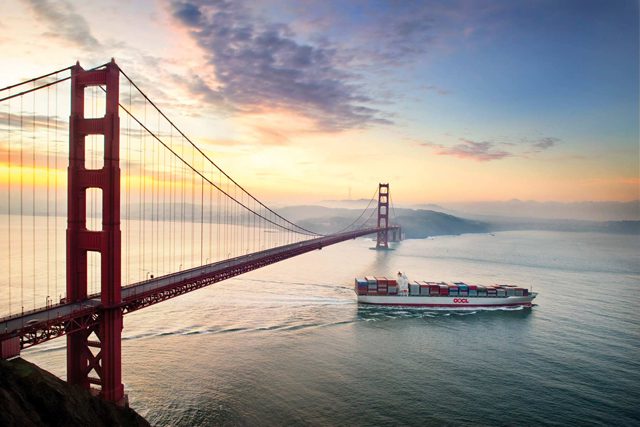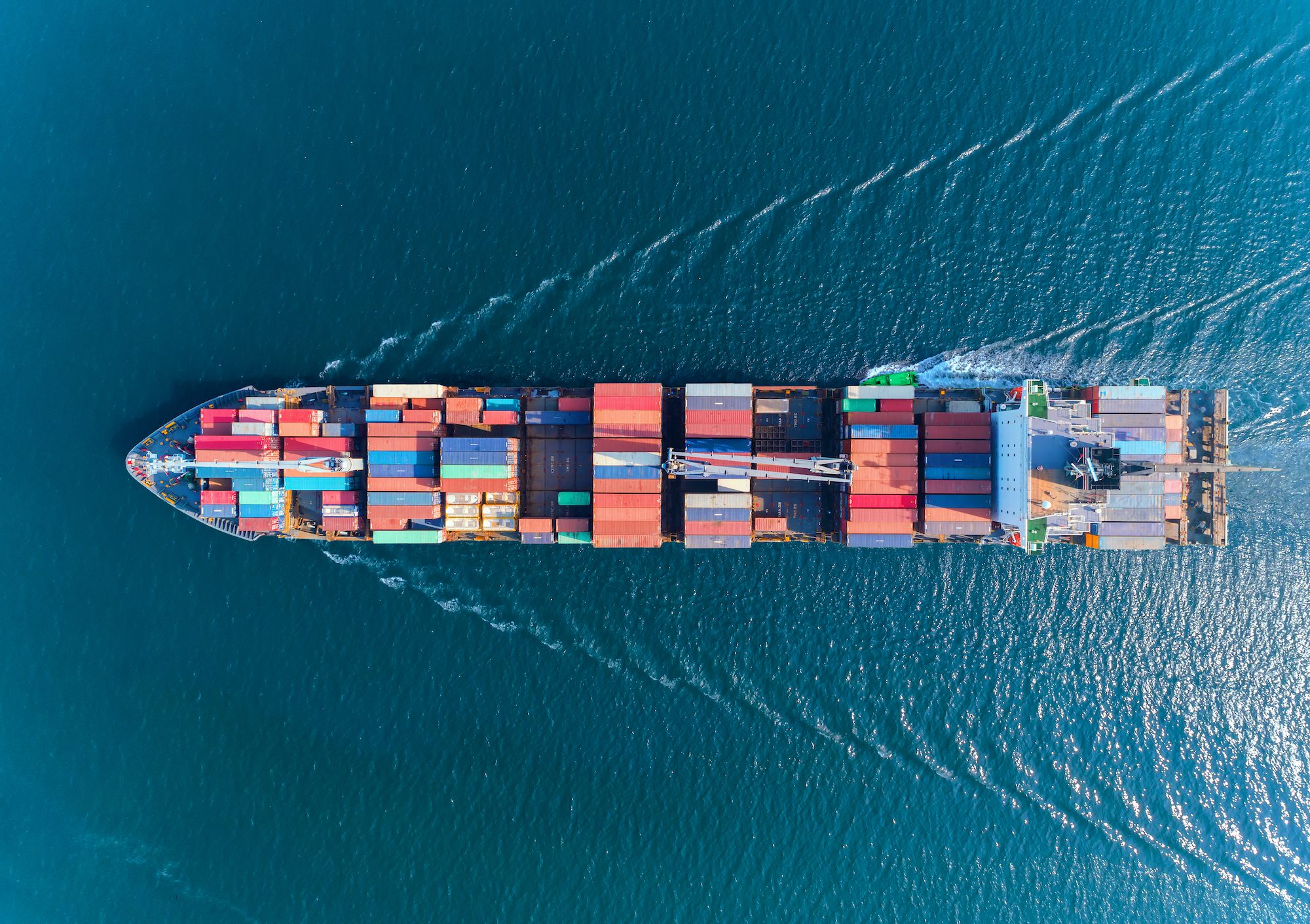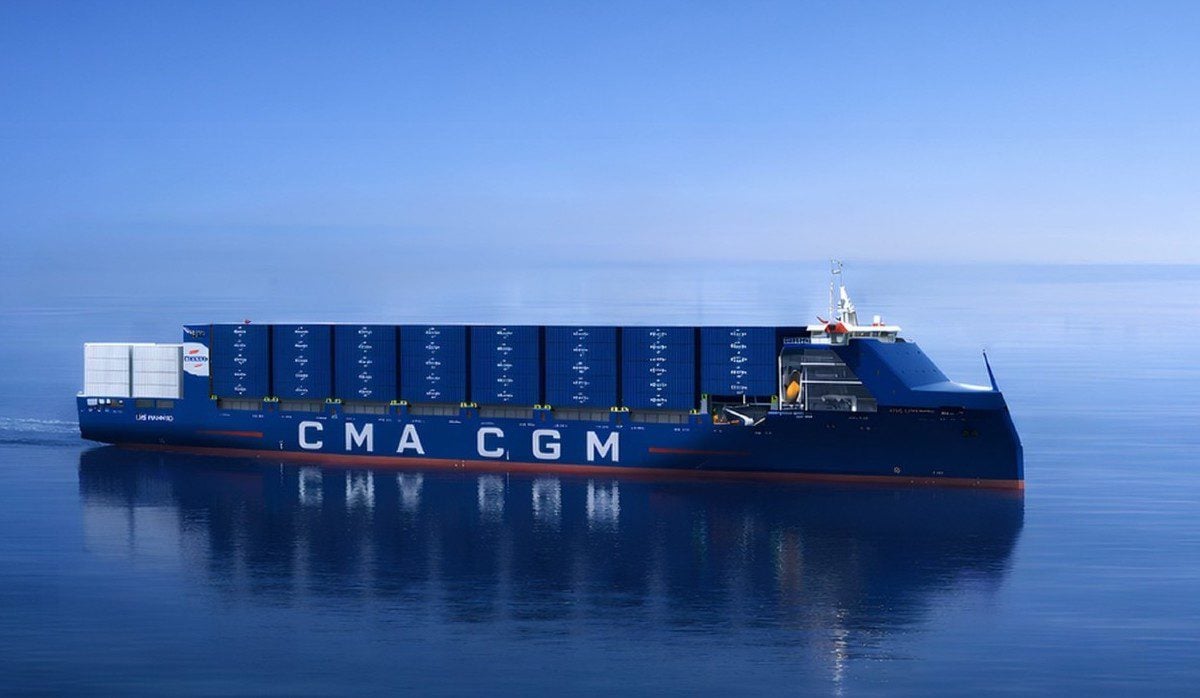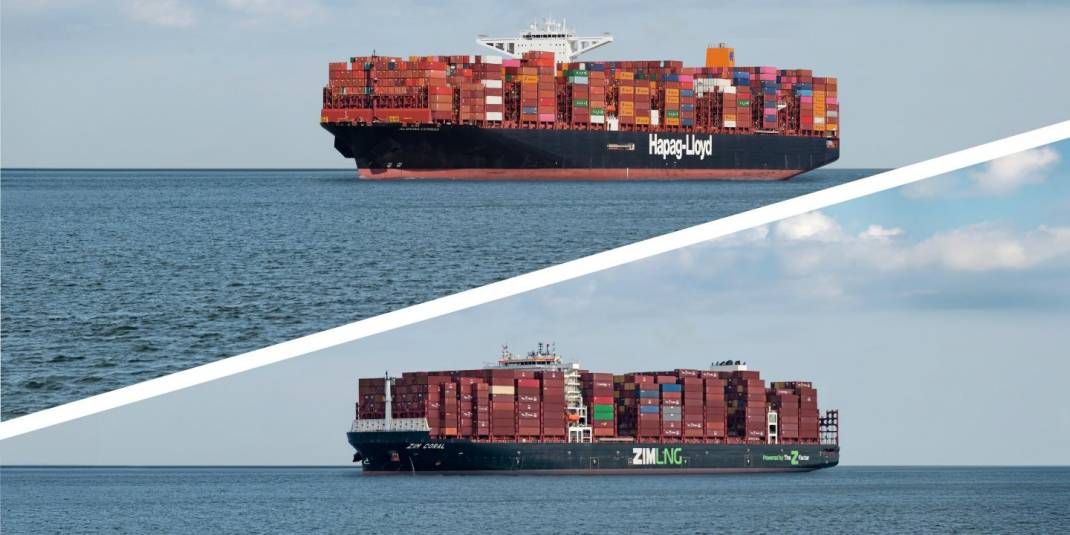OOCL Beijing, File photo courtesy OOCL
 COPENHAGEN, July 16 (Reuters) – Container shipping companies were urged to raise Asia-U.S. freight rates by at least $600 per 40-foot container (FEU) with effect from Aug. 1, their organisation TSA said on Wednesday.
COPENHAGEN, July 16 (Reuters) – Container shipping companies were urged to raise Asia-U.S. freight rates by at least $600 per 40-foot container (FEU) with effect from Aug. 1, their organisation TSA said on Wednesday.
Members of the TSA (Transpacific Stabilization Agreement) include 15 of the world’s biggest container shipping lines such as Denmark’s Maersk Line, a unit of A.P. Moller-Maersk , privately owned Switzerland-based Mediterranean Shipping Company (MSC), French privately held CMA CGM, China’s COSCO, Korea’s Hanjin Shipping and others.
According to TSA, members are seeing sustained third-quarter cargo demand across major commodity segments.
Spot freight rates are calculated and published every week by Shanghai Shipping Exchange. Last week rates for transport of 40-foot containers from Asia to U.S. West Coast stood at $3,648.
TSA said cost-cutting had been at the heart of carrier strategies in recent years, but that lines needed a rate structure that would encourage investment, draw equipment back into the market, cover rising inland transport and cargo-handling costs and enable carriers to broaden service offerings.
“Given current rate levels, TSA members believe that $600 per FEU is the minimum needed to meet those objectives,” Brian Conrad, TSA executive administrator, said in a statement.
Freight rates plunged to unprofitable levels for most carriers in 2013 as a result of overcapacity in the market.
Founded in 1989, the TSA calls itself a “research and discussion forum of major container shipping lines” serving the trade from Asia to the United States.
Liner shipping was previously organised in similar groups called “liner conferences”, which met to discuss market conditions, freight rates and other common concerns.
But the European Union decided in 2006 to ban the practice due to competition rules, and the ban took effect in 2008. (Reporting by Ole Mikkelsen; editing by Jane Baird)
(c) 2014 Thomson Reuters, All Rights Reserved
Editorial Standards · Corrections · About gCaptain
This article contains reporting from Reuters, published under license.

 Join The Club
Join The Club











